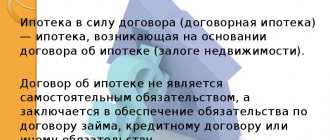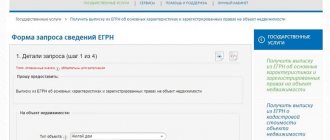What happens if you don't check the car before buying?
Suppose you decided to save money and did not buy a new car at the dealership. What keeps you from doing this is the high cost and the requirement for mandatory service from an official dealer to maintain the warranty. And you also don’t like a significant loss in value in the first three years of operation.
You thought and thought and bought a used car. And they didn’t necessarily buy it second-hand, since many official dealers also sell used vehicles that once left the gates of their stores. Moreover, dealers provide a guarantee for such cars.
So you arrive in a newly purchased car to the department of the State Traffic Inspectorate of the Ministry of Internal Affairs of Russia to register it with the state. And instead of new license plates, an unpleasant surprise awaits you. According to the traffic police database, your newly acquired property has been seized.
How so? Constraints can be expressed in the following ways:
- Prohibition to dispose of property (prohibition on registration actions, prohibition on carrying out technical inspection);
- Restriction of the right to use property (the car will remain in the owner’s storage, but it is prohibited to use it, that is, the car becomes “real estate”);
- Seizure of property (the car will kindly be placed in a special parking lot until better times).
Reasons for car seizure?
Let's look at the most common reasons why property may be seized and why restrictions may be placed on it.
- If the owner of the car owes more than 3,000 rubles in enforcement proceedings;
- The presence in court of a civil case regarding the division of jointly acquired property of the spouses, which is a car. Or cases under a loan agreement, where the collateral is a car;
- Consideration by an arbitration court of a bankruptcy case of a potential seller;
- Initiation of a criminal case by law enforcement agencies, in which the vehicle was seized.
Ban on real estate transactions: legal grounds
One of the most common reasons is the risk that fraudsters and other interested parties will conduct a transaction by deceiving the home owner
. Thanks to preventive measures, the owner reduces the risk of potential problems arising in the future, which include the consequences of fraudulent actions:
- on the sale of property, transfer of an object under a deed of gift, exchange agreement;
- registration of a pledge or encumbrance on an object;
- revocation of property rights.
Such fraudulent scams can occur if the real estate owner’s passport or title documentation for housing and other property is stolen, if the owner of the property accidentally loses them, which the scammers take advantage of.
Thus, if the owner will not live in the apartment for a long time (for example, due to a business trip), then it is necessary to document the impossibility of carrying out registration actions.
also be
creditor: until financial obligations to the bank are fulfilled, the debtor will not be able to dispose of the property.
A restrictive measure may be imposed during legal proceedings.
On legal grounds
for imposing a ban include the following:
- court order;
- a statement on behalf of the owner who wants to prevent the risk of other persons committing an illegal transaction;
- legal requirements (for example, with a mortgage);
- enforcement proceedings: the ban is imposed by a resolution of an FSSP officer.
What is the procedure for imposing restrictions?
Restrictions on the disposal of property are established by the FSSP. The service does this on its own initiative as part of enforcement proceedings for debt collection. Or on the basis of a relevant judicial act when considering one of the above cases.
The bailiff arrests the debtor's vehicle with the obligatory participation of witnesses and with the preparation of a corresponding act (inventory of property).
The description must indicate:
- data of persons present at the arrest;
- name (make) of the car and its preliminary assessment;
- type, volume and period of restriction of the right to use property;
- a note of seizure, or data of the person to whom the car was transferred for safekeeping.
Resolution banning registration actions with real estate
The order may come from the following persons:
- The ban on transactions with objects is imposed by FSSP employees
. They act in the interests of the financial institution and have the legal right to seize property to ensure that the claimant's demands are met. - A ban may also be imposed when a judicial authority
a determination to secure a claim. The document comes into force immediately after its issuance. The plaintiff receives a photocopy of it and a writ of execution. As soon as the FSSP employee has received the enforcement documentation, the debtor is faced with an encumbrance and restriction of rights. - Finally, a prohibition may come from the property owner
if he believes that there is a risk of fraudulent activity.
Is it possible to drive a car if it is under arrest?
Material on the topic
Is it possible to drive a seized car? What will it be like to drive a seized car? It's better not to take risks. Arrest means a ban on carrying out actions with property. Including, a person faces criminal liability for such actions.
Well, of course you can! If a car has a steering wheel, wheels and other necessary parts, why not drive it? The only question is the distance of travel.
If the FSSP has established a restriction on the right to use property or its confiscation, your trip will end near the first traffic police officer who decides to stop you to check your documents. After which you will have to go to the seller on your own two feet and say some kind words to him.
If there is a ban on registration actions, coupled with a ban on carrying out a technical inspection, then you can “peacefully” ride while your MTPL insurance policy is in force, to renew which you need to undergo a technical inspection.
We have painted an interesting perspective for you, haven’t we?
Are you going to sell a car that is under arrest?
And this arrest, among other things, contains a ban on registration actions established by the Federal Bailiff Service. However, remember that the Criminal Code of the Russian Federation provides for liability for illegal actions, incl. alienation and illegal transfer, in relation to property subject to seizure with a maximum penalty of up to two years in prison.
Legal consequences of violating the ban
If Rosreestr re-registers the object, then authorized persons will face punishment. Such a transaction will be considered void, and the participants will have to return to each other all the rights and obligations that they received under it.
At the same time, such real estate may be sold in order to repay the debt to the creditor, in whose interests such an encumbrance was placed on the property. In this case, the registration action is permissible by law.
If the acquirer did not have information about the imposition of the measure, then he has the right to recognize the transaction as void. To do this, he needs to initiate legal proceedings
, drawing up a claim and attaching evidentiary documents to it.
A real estate buyer can protect himself from dealing with scammers. Often, dishonest people use deceptive schemes when buying and selling housing, misleading the participants in the transaction.
Each transaction must be registered in the Unified State Register of Real Estate
. Before signing the agreement, it is necessary to check whether the seller is the legal owner of the property. To do this, you can go to Rosreestr and get an extract that contains all the important information.
If information is not available in Rosreestr, you must contact another authorized body that carried out the registration of real estate. You can also order an extract online. It is also necessary to carefully study the title documentation for the property provided by the seller.
Who can seize transport and in what cases?
The seizure of property can be established by a bailiff if the amount of debt is more than three thousand rubles.
Restrictions on disposition may also be imposed by the court in order to preserve property until a final decision is made in the case:
- in civil cases (for example, during bankruptcy proceedings in order to prevent the sale or destruction of property, or when considering a dispute over a loan agreement in which the seized vehicle was collateral);
- criminal (at the request of the investigator for the purpose of executing a sentence in a civil suit, collecting a fine or confiscating property).
How to check a car for seizure?
If you happen to encounter an “arrested” iron horse when purchasing, then you are out of luck. And most likely it will be confiscated. Well, it happens! You simply did not exercise sufficient caution when checking the vehicle before purchasing it.
There are free Internet resources that allow you to check by state registration number or VIN whether there are any restrictions on a particular car: https://pristav-russia.ru/services/proverka-avto-na-ogranichenia-fssp.html.
In addition, such information can be checked on the website of the traffic police and the bailiff service.










